Is ketchup healthy? The best ketchup brands with reduced or no sugar
Do you love the red stuff but ever ask yourself 'is ketchup healthy?' We asked how much sugar is in regular ketchup and suggest lower-sugar alternatives.
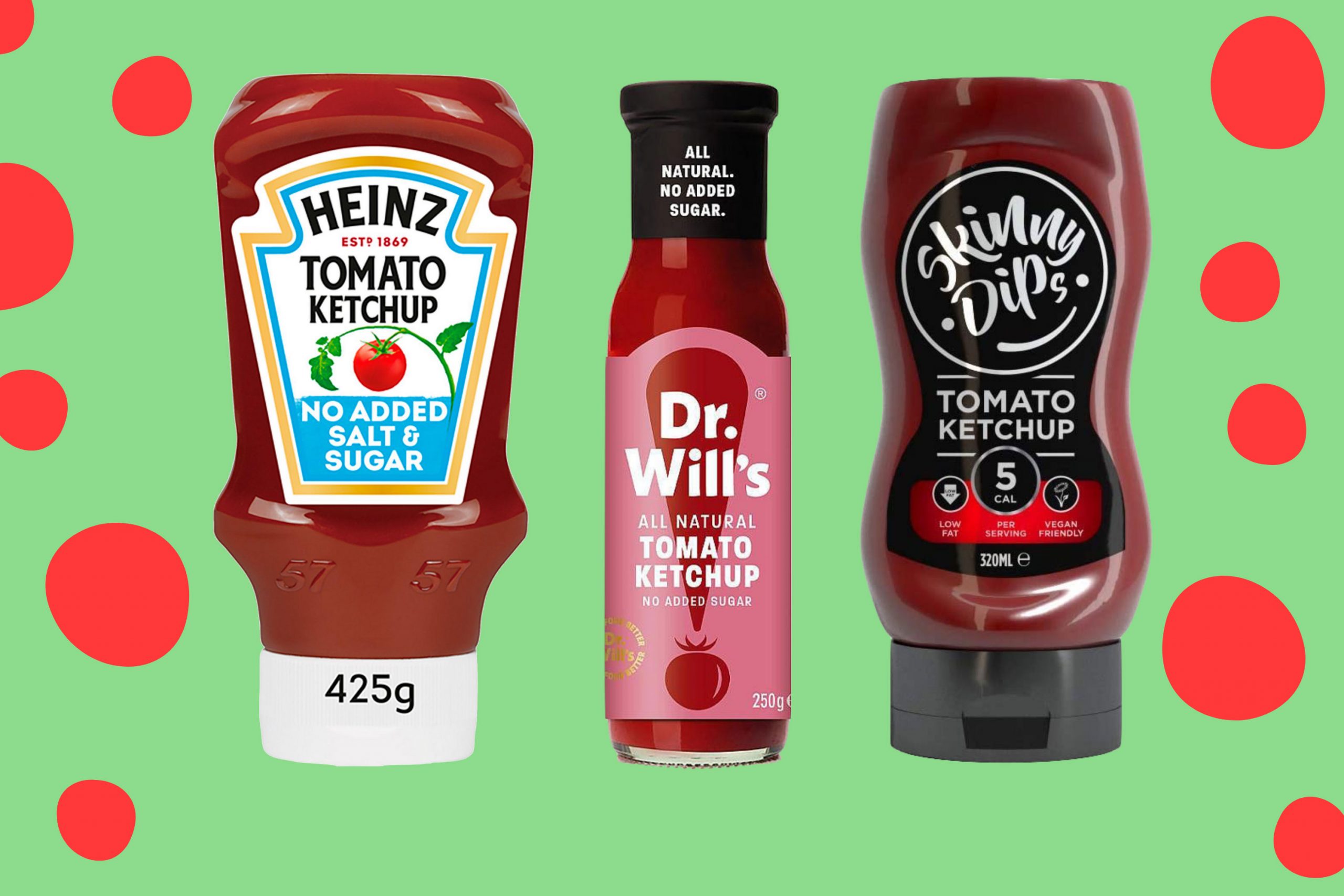

If you love the red stuff and apply liberal amounts to your fries you may sometimes ask yourself 'is ketchup healthy?'
Well, the suggested 15g serving of Heinz tomato ketchup contains 15 calories, 3.5g carbohydrates (most of which turns to sugar), no fat and very little protein. Those figures sound relatively small but as we tend to be liberal with ketchup the calorie, carb and sugar content quickly adds up.
Although tomatoes are a rich source of the antioxidant lycopene – which can potentially reduce inflammation and the risk of certain cancers, as well as lower the 'bad' LDL cholesterol in blood – it's debatable as to whether the amount found in a serving of ketchup can make a difference. In the 1830s – as the health benefits of tomatoes emerged – tomato ketchup was sold as a medicine to treat diarrhoea, indigestion and rheumatism, though it was eventually rejected as as quack cure. So, while ketchup contains lycopene, you're more likely to reap the benefits if you eat sun-dried tomatoes, use tomato paste in cooking, or make your own tomato sauce – all of which are healthier and less processed.
Here, we asked two experts 'is ketchup healthy?' and whether it can make us gain weight.
Is ketchup healthy or unhealthy?
So, is ketchup healthy? 'Like with most foods, I wouldn’t say it was inherently healthy or unhealthy. It’s not exactly counted as one of your five a day (at least in the UK), but having some ketchup on your chips every now and again won’t do you any harm in the long run,' says dietitian Jess English. 'However, if you’re having large amounts of it and using it regularly then it can contain quite high amounts of added sugar, salt and additional calories,' she warns.
'It's normally only used in small amounts as a condiment and in most cases not every day, so I see nothing wrong with including a lower sugar and salt variety as part of a healthy diet,' adds nutritionist Rob Hobson. Just try and stick to the serving suggestion of 15g, which equals approximately 1 tbsp.

How much sugar is in ketchup?
The amount of sugar in ketchup depends entirely on the brand and whether you choose a reduced sugar variety. 'The UK’s most popular ketchup (Heinz) contains around 23g of sugar per 100g. This is made up of both naturally occurring and added sugars,' says Jess. 'So, the average squirt works out at about 4g of sugar.' This amount is a sixth of the recommended daily amount (RDA) of added sugar for children seven and older, and around an eighth of the RDA for adults.
GoodtoKnow Newsletter
Parenting advice, hot topics, best buys and family finance tips delivered straight to your inbox.
'The sugars in ketchup are added sugar,' says Rob, which contribute to your daily sugar intake. To keep your daily sugar intake down opt for the reduced sugar variety.
Does ketchup make you gain weight?
'It would depend on a lot of things such as how big your portion size is, how active you are, and how often you like to eat it,' says Jess, So when you're eating ketchup consider what you're eating it with, as it's unlikely you'll be adding it to a salad.
To get an idea about how easily the calories in condiments can catch up with you consider this: a double serving of standard ketchup is around 30 calories. If you eat ketchup, on average, four times a week, that's an extra 120 calories a week – or 6,240 calories a year. For women, that's more than three days' worth of calories! If you opt for a no-added sugar version, you're still consuming 1,000 more calories a year than you would be if you didn't eat ketchup.
What ketchup has no sugar?
There are not many zero sugar ketchup brands on the market, and many contain hidden sugars. 'You could try making your own, or check the labels for no-added-sugar varieties,' says Jess. 'Heinz do one [as do Hunter & Gather – see our recommendations below] though it’s made with a sweetener, which might not be tolerated well by everybody.'
Is ketchup healthy if you make your own? Making your own ketchup is arguably better for you as it won't be processed, though it could still be high in sugar, depending on the recipe. Try this easy homemade tomato ketchup recipe with the aim of adding less sugar than the suggested 3tbsp, or replacing sugar with the same amount of date paste, which contains less calories and some fibre and potassium.

Rob Hobson is an award-winning registered nutritionist, with more than 15 years experience. Accredited by the AFN and SENR, he also has degrees in nutrition, public health nutrition and sports nutrition. Rob is a published author of three successful books, Unprocess Your Life, The Detox Kitchen Bible and The Art of Sleeping. He has acted as Head of Nutrition at Healthspan since 2013.
Best reduced or no-sugar ketchup brands
These brands contain reduced or no sugar.
Skinny Dips Tomato Ketchup Low Calorie
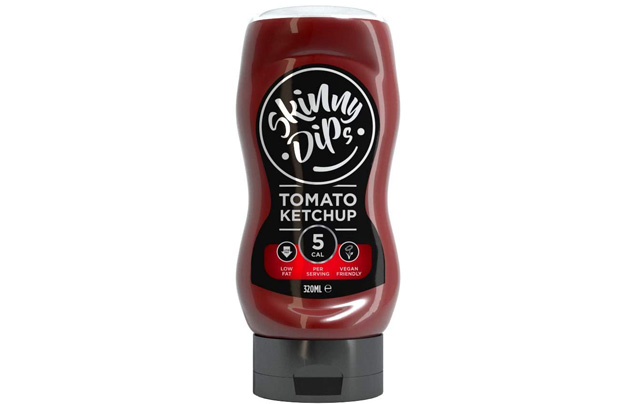
Amazon | £3.49 for 320ml
Best ketchup for: those watching their calorie intake
With only 4 calories per serving, this is the dieter’s choice. Plus it’s lower in sugar than the others in this round-up, with just 2.4g per 100g (0.4g per 15ml portion). Plus, it is sweetened by stevia, which is regarded as one of the healthier sugar substitutes. Skinny Dips gets glowing reviews on Amazon, though some may find that the consistency isn’t thick enough.
Hunter & Gather Unsweetened Ketchup
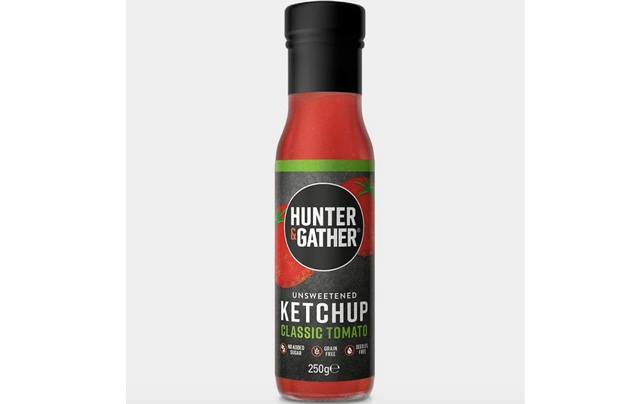
Hunter and Gather | £3.59 for 250g
Best ketchup for: those following the keto diet
There’s no sugar, sweeteners or dates in this keto-friendly ketchup – just organic tomatoes, vinegar, herbs and spices. While it may be too tart for some, a little goes a long way. And at 4.8g sugar per 100g (0.72g per 15g portion) it’s about the same as Heinz’s No Added Sugar, but without artificial sweeteners (the sugar content comes from natural ingredients).
Heinz 50% No Added Sugar Or Salt Ketchup
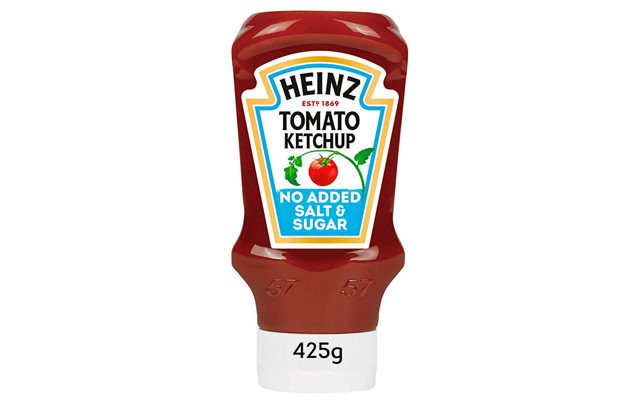
Sainsbury’s | £2 for 425g
Best ketchup for: those looking to reduce their refined sugar intake
Only 4.4g sugar per 100g (0.7g per 15g portion) compared to 22.8g per 100g (3.5g per 15g portion) for regular Heinz ketchup, this option doesn’t contain refined sugar. However, it does have the artificial sweetener sucralose in it. Although thought to have little or no effects on blood sugar and insulin levels, sucralose may cause an inflammatory response in some people.
Heinz 50% Less Sugar And Salt
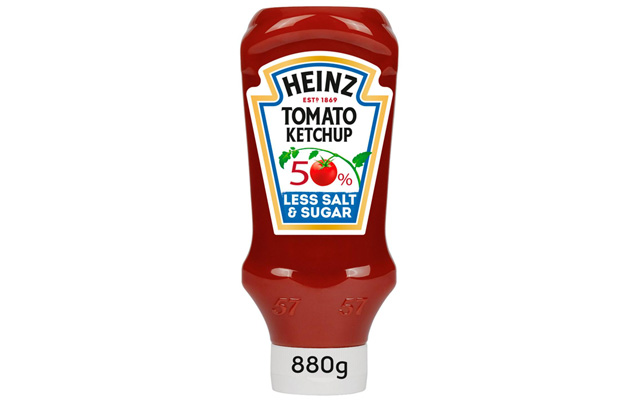
Tesco | £2.80 for 880g
Best ketchup for: those who don't mind swapping refined sugar for sweetener
At 11g sugar per 100g (1.7g per 15g portion) this is a better option than standard ketchup but is sweeter than Heinz's No Added Sugar or Salt. It contains stevia – one of the better sweeteners. A decent middle ground if you’re not quite ready for zero sugar.
Dr Will’s All Natural Ketchup
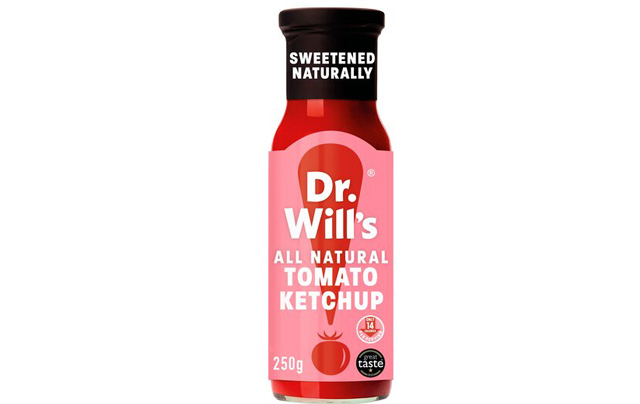
Waitrose | £2.17 for 250g
Best ketchup for: those who want to follow a natural diet
While this super tomatoey ketchup contains 16.5g sugar per 100g (2.4g per 15g portion) it doesn’t contain refined sugar. Instead it’s made from date paste. This contains fructose – a type of fruit sugar that doesn’t cause the same blood sugar spike as refined sugar.
LEON Tomango Ketchup
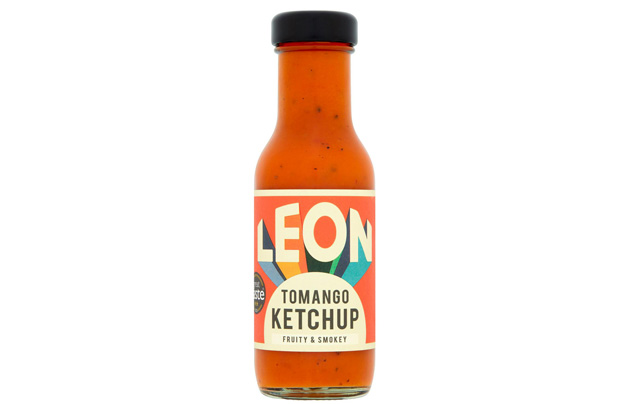
Sainsbury’s | £250 for 275g
Best ketchup for: those like a spicy kick
At 17.9g sugar per 100g (2.7g per 15g portion) this spicy, fruity number is lower in sugar than standard ketchup. However, it's still relatively high compared to low or no sugar options.
Heinz Saucy Ketchup and Mayo Sauce
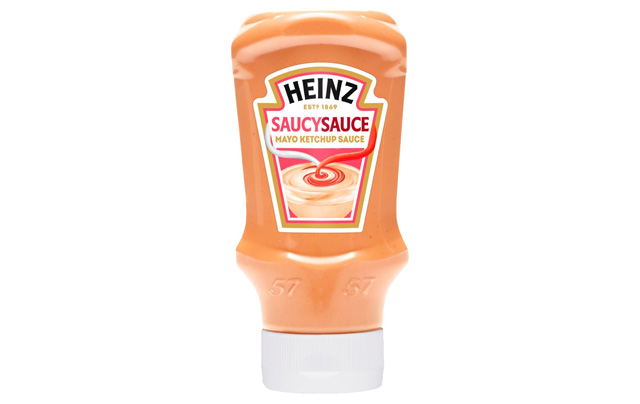
Ocado| £2.70 for 400g
Best ketchup for: those who love ketchup and mayo
If you’re willing to mix things up a bit this blend of ketchup and mayo has around same amount of sugar as Heinz’s 50% Less Sugar and Salt – 12g per 100g (or 1.8g per 15g portion).
Video of the Week

Debra Waters is an experienced online editor and parenting writer. She also has a strong background on health, wellbeing, beauty, and food. She currently writes for Goodto and Woman&Home, and print publications Woman, Woman’s Own, and Woman’s Weekly. Debra has written for What to Expect, Everyday Health, and Time Out. In addition, she has had articles published in The Telegraph and The Big Issue.